A PUBLICATION FOR ALUMNI AND FRIENDS OF THE RUTGERS SCHOOL OF SOCIAL WORK


A PUBLICATION FOR ALUMNI AND FRIENDS OF THE RUTGERS SCHOOL OF SOCIAL WORK

AI HAS THE POTENTIAL TO ADDRESS A WIDE RANGE OF SOCIAL ISSUES, BUT TACTICS MUST BE GROUNDED IN SOCIAL WORK PRINCIPLES AND COMMUNITY ENGAGEMENT.



“We may encounter many defeats, but we must not be defeated.”
MAYA ANGELOU


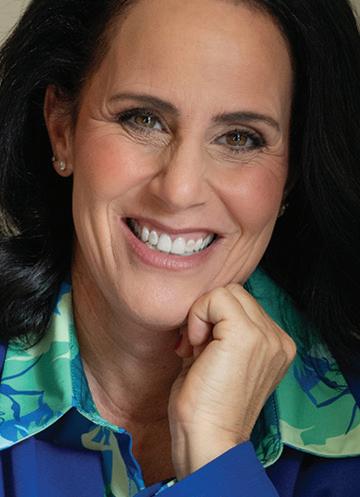

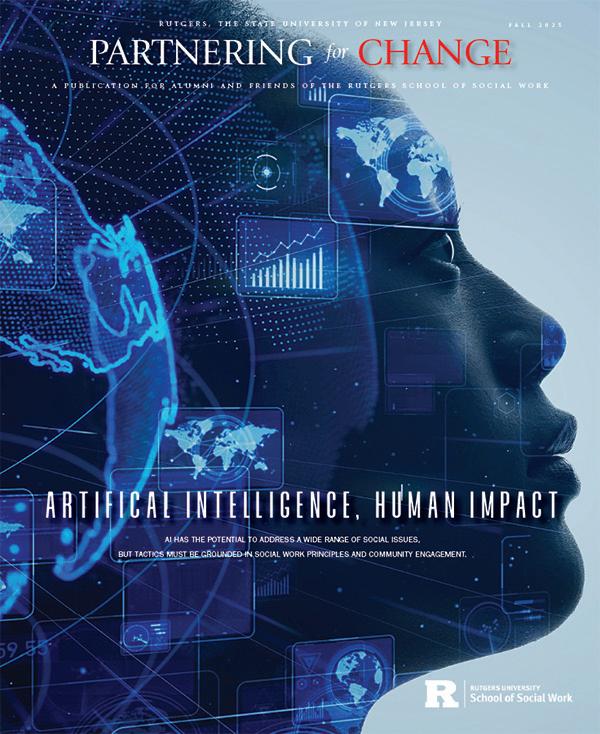

It is my pleasure to share the latest edition of our alumni magazine with you.
As you’ll read, our engagement with AI is not just timely, it’s essential. Social work’s enduring focus on equity, ethics, and human dignity positions us to be a critical voice in shaping how AI technologies are developed and used. For over a decade, social workers across the country have been partnering with engineers, computer scientists, as well as social and behavioral health scholars to develop tools that address complex social problems and support decision-making in human services. Here at Rutgers School of Social Work, we’re proud to be advancing this work with ethical intention and thoughtful leadership, ensuring that innovation in AI is guided by the values of our profession and the real needs of the communities we partner with and serve.
Within these pages, you’ll also meet some of the remarkable people driving our mission forward—faculty pushing the boundaries of research and scholarship, students committed to transformative practice, and alumni making a difference in policy, advocacy, and service. Their stories reflect the core of what defines our school: community-engaged work that effects social change.
As we look to the year ahead, I’m filled with anticipation for all that we will accomplish together. Our programs, centers, and institutes continue to expand the frontiers of knowledge and practice. We remain dedicated to academic excellence, social innovation, and community partnership, the pillars that sustain and strengthen the profession of social work.

Whether you’re reconnecting with the School through this magazine or actively involved in our ongoing initiatives, please know that your presence and participation matter deeply. The collective wisdom and commitment of our alumni and extended community are vital to our shared success. Thank you for taking the time to stay connected with the School and with the inspiring work being carried out by our faculty, students, staff, alumni, and collaborators. Together, we will continue to advance justice, equity, and well-being—locally, nationally, and globally.
In community,
George S. Leibowitz, Ph.D. DEAN AND DISTINGUISHED PROFESSOR RUTGERS SCHOOL OF SOCIAL WORK
n Monday, May 19, Rutgers School of Social Work recognized BASW, MSW, DSW, and Ph.D. graduates at its 2025 Convocation ceremony. Hundreds gathered at Jersey Mike’s Arena in New Brunswick to support the 829 graduates who earned a degree from the School of Social Work this year, including 685 MSW grads, 121 BASW grads, 12 DSW grads, and 11 Ph.D. grads.
Rutgers School of Social Work Dean and Distinguished Professor George Leibowitz welcomed guests to the ceremony, and Rutgers University–New Brunswick Chancellor Francine Conway and NASWNJ Executive Director Tiffany L. Mayers, SSW’14 shared congratulatory remarks with the Class of 2025. Sandra Edmonds Crewe, the 202425 Rutgers School of Social Work Sojourner Truth Social & Racial Justice Visiting Professor and Professor and Dean Emerita at Howard University School of Social Work, delivered the convocation address. Along with the conferral of the degrees, the School presented the following awards in recognition of the students’ outstanding work:
MSW
n Outstanding MSW Student in the Clinical Specialization: Michaela Cronin and Jessica Gottlieb Empestan
n Outstanding MSW Student in the MAP Specialization: Katherine Rose Barany
n Outstanding MSW Student in the Online Program: Kaitlin Hand
n Outstanding MSW Student in the Intensive Weekend Program: Michael Herbach Zahler
n Outstanding MSW Student in the Blended Program: Angel Maria Cruz and Ryan Conner Long
n Outstanding MSW Student Studying in Newark: Paola Gissell Benitez-Marquez and Saturday Zammit
n Outstanding MSW Student Studying in Camden: Prince Barshim Alvarado Sr. and Gina Marie Rose Bellon
n Outstanding MSW Student Studying in New Brunswick: Melissa Arin Sartorius
BASW
n Outstanding Student in the Camden BASW Program: Amanda Smith
n Outstanding Student in the New Brunswick BASW Program: Matteo Szarka
n Brian C. Wright Social Work Award: Tamika DeShields
Ph.D.
n Outstanding Doctoral Dissertation Award: Clara Scher
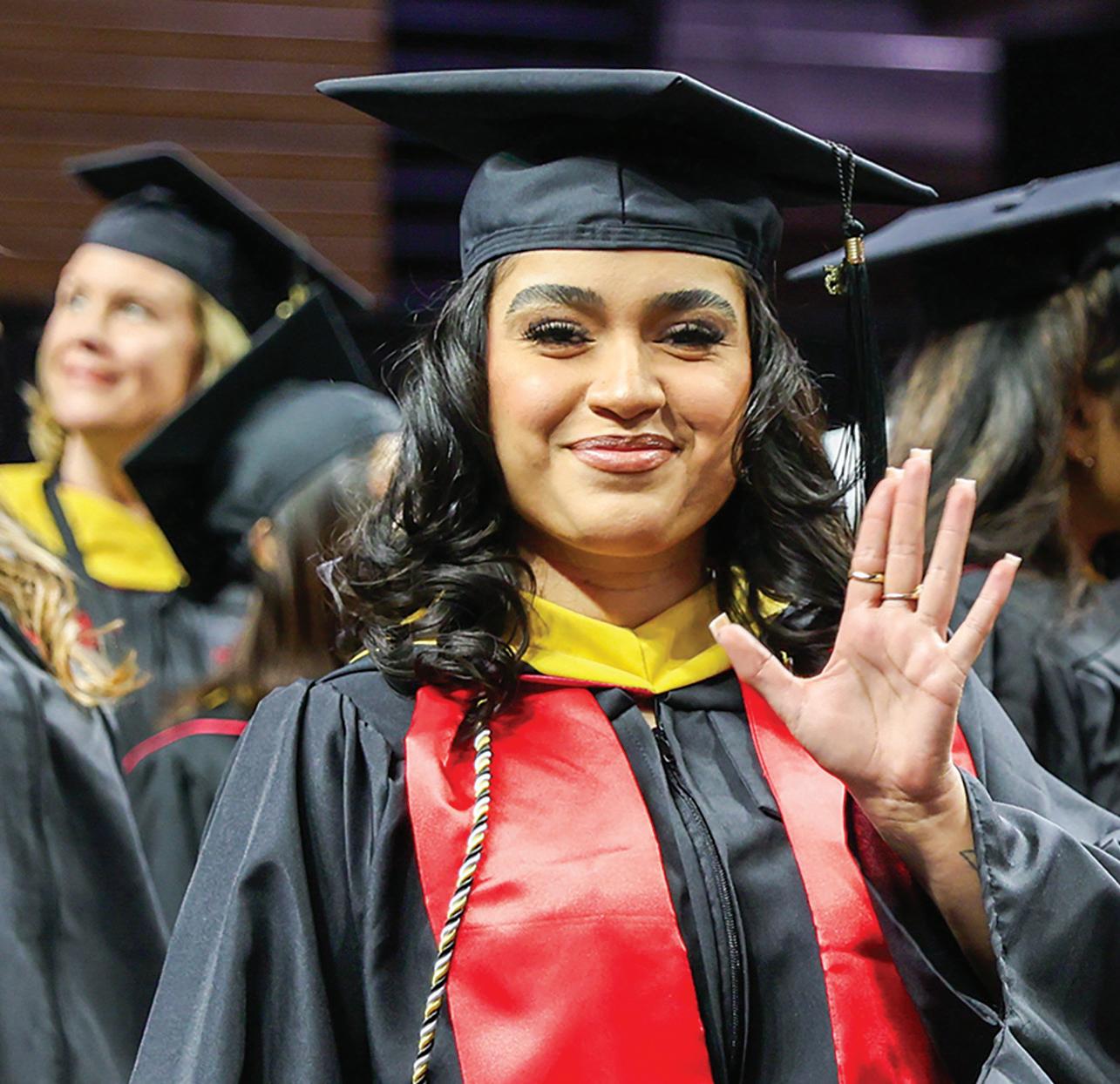
n Dean’s Honorable Mention for Dissertation of the Year Award: Lena Moraa Obara
n Excellence in Faculty Mentoring in the Ph.D. Program Award: Sarah McMahon
n Ph.D. Professor of the Year: Edward Alessi
In addition, faculty and staff members were presented the following awards:
n Outstanding Professor in Clinical Specialization: Rupa Khetarpal
n Outstanding Professor in MAP Specialization: Marla Blunt-Carter
n Outstanding Professor for Excellence in Inclusion, Intersectionality, Diversity, Equity and Advancement (IIDEA) Teaching: Tawanda Hubbard
n Outstanding Professor for Innovative and Creative Teaching: Mark Lamar and Elsa Candelario
n Most Supportive Professors: DuWayne Battle and Lauren Snedeker
n Outstanding Lecturer: Kristen Brady
n Outstanding Doctoral Student Teaching in the BASW or MSW Programs: Lucy Nonas Barnes and Dominique Paz
n Most Supportive Staff Member: Jeri Middlebrook
To round out the program, student speaker Angel Maria Cruz, a member of the MSW Class of 2025, addressed the audience with an inspiring speech. Ms. Cruz is a domestic violence survivor and advocate. She is an ordained minister, youth mental health first aid responder, a domestic violence sensitivity professional, passionate speaker, vocalist, coach, and artist. Ms. Cruz earned her MSW with a specialization in Women, Adults & Children and a Certificate in Interpersonal Violence & Trauma.
Dean Leibowitz concluded the ceremony with words of encouragement for the Class of 2025. “We wish you great success and we know that your impact will be far reaching from your local communities to the rest of the world,” he said. “We are so very proud of you!” n

Rutgers School of Social Work’s Office of Continuing Education hosted its ninth annual Challenging Racism Conference, “A Call to Action,” on Wednesday, June 9, bringing together more than 500 social workers and allied professionals for a powerful virtual learning opportunity. Attendees heard from thought leaders in the profession and gained new skills to address issues in their work with clients, organizations, and communities.
“Challenging systemic racism is central to the mission of social work, which is why we’ve convened this conference for nearly a decade,” said Dr. Douglas Behan, Director of the Office of Continuing Education. “Each year, we bring in leading voices who share their insights and inspire our community in the ongoing work towards racial justice.”
Antoinette Y. Farmer, Ph.D., Professor and Associate Dean for Diversity, Equity, and Inclusion at Rutgers School of Social Work, welcomed guests to the conference, and Dr. Michael Yellow Bird presented the opening address. Dr. Yellow Bird is Dean and Professor of Social Work at the University of Manitoba. His research focuses on the effects of colonization and methods of decolonization, ancestral health, intermittent fasting, Indigenous mindfulness, neurodecolonization, mindful decolonization, and the cultural significance of Rez dogs.
Dr. Yellow Bird is the founder, director, and principal investigator of The Centre for Mindful Decolonization and Reconciliation at the University of Manitoba. He is the author of numerous scholarly articles, book chapters and research reports, and the co-editor of four books. He is an enrolled member of the Mandan, Hidatsa, and Arikara (MHA) Nation in North Dakota.
The conference keynote was delivered by Heather McGhee, J.D., who designs and promotes solutions to inequality in America. An influential voice in the media and a former NBC contributor, McGhee regularly appears on NBC’s Meet the Press and MSNBC’s Morning Joe, Deadline White House, and All In
McGhee is the chair of the board of Color Of Change, the nation’s largest online racial justice organization, and also serves on the boards of the Rockefeller Brothers Fund, the Open Society Foundations’ US Programs, and Demos. McGhee is the author of the bestselling book, The Sum of Us: What Racism Costs Everyone and How We Can Prosper Together. She holds a BA in American Studies from Yale University and a J.D. from the University of California at Berkeley School of Law.
The event concluded with a lively panel discussion featuring Sandra Edmonds Crewe, MSW, Ph.D., ACSW (Sojourner Truth Social & Racial Justice Visiting Professor at Rutgers School of Social Work), Mark Lamar, MSW, MBA, LCSW (Associate Professor of Professional Practice & Executive Director of the Office of Practicum Learning at Rutgers School of Social Work), Heather McGhee, J.D., and Michael Yellow Bird, Ph.D. Chiara Sabina, Ph.D. (Associate Professor, Chancellor’s Scholar for Inclusive Excellence in Interpersonal Violence Research & Associate Director of the Center for Research on Ending Violence at Rutgers School of Social Work) served as moderator.
“The conference reminded me why I chose to be a social worker many years ago and why I love to keep learning from others in the field and profession,” said a conference attendee. Another participant said, “This was a critically important discussion at a critically important moment. I am looking forward to putting what I am taking away from this into practice.”
The annual Challenging Racism Conference is offered in honor of Dr. William Neal Brown, a professor at the School of Social Work who passed away in 2009. Dr. Brown was the first Black professor at Rutgers. Although he taught at the School of Social Work for over 30 years, his contributions and legacy historically went unnoticed. To learn more about Dr. Brown’s life and legacy, read his Oral History Archives interview through the Rutgers-New Brunswick School of Arts and Sciences.
Special thanks to Dr. Brown’s longtime partner, Suzanne Zimmer, who made this support possible through her continued advocacy and contributions to the School of Social Work and Rutgers University. n

Associate Professor of Professional Practice & Director of Continuing Education Douglas Behan (PI) was awarded $66,358 from the New Jersey Department of Children and Families to fund the writing and/or rewriting of adoption course-related curriculum for the Office of Continuing Education.
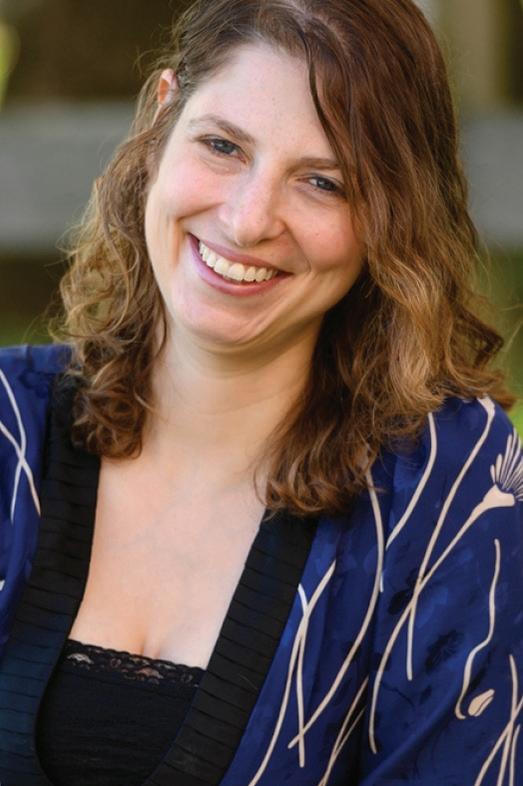
Associate Professor Emily Bosk (CoI) was awarded $131,570 to lead the qualitative research for the project
“Unconditional Cash Transfers and Child Maltreatment.” This study is the first to examine
whether giving families economic support reduces their involvement with the child welfare system. The research, led by William Schneider (University of Illinois) and Megan Feely (University of Connecticut), is funded by a $600,000 grant from the W. T. Grant Foundation and partners with the Illinois Department of Children and Families and Brightpoint USA. The project aims to understand the effects of cash gifts on child welfare outcomes for Child Protective Services involved caregivers; to examine differential and moderating effects by race/ethnicity and economic hardship on the relationship between cash gifts and the outcomes; and to understand how cash gifts are used.
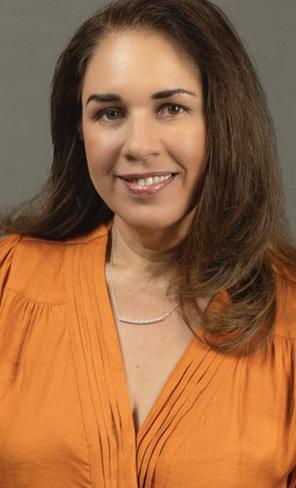
Professor of Professional Practice & Director of Latina/o/x Initiatives
for Service, Training, and Assessment (LISTA) Certificate Program Elsa Candelario received the 2025 Award for Outstanding Contributions to Social Work Education from the National DSW Conference Committee. Dr. Candelario also coauthored the book chapter “Latino New Jersey: A demographic and geographic portrait” in Latinas/os in New Jersey: Histories, Communities and Cultures.
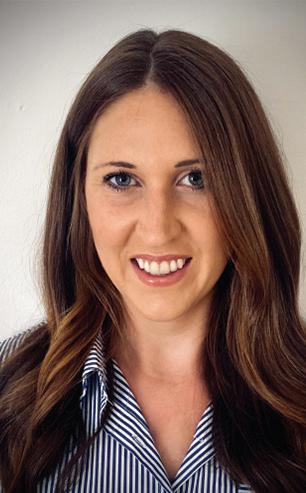
Assistant Professor of Research Julia Cusano (PI) received a $27,204 grant from the Rutgers University New Jersey State Policy Lab for the project “Enhancing Child Welfare Response to Family Violence: A Rigorous Evaluation of a Child Welfare Certificate Program in New Jersey.” The project will evaluate a certificate program that provides
advanced training to professionals addressing interpersonal violence within families, assessing its impact on participants’ knowledge, skills, and field application.

DSW Program Director & Associate Professor of Professional Practice for Reproductive Justice E. Goldblatt Hyatt edited the new book Social Work and Reproductive Justice: A Necessary Fit. It is the first book of its kind to directly align reproductive justice and social work through illustration.
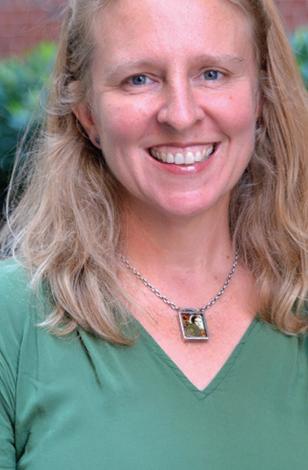
Assistant Professor Caroline HarmonDarrow (PI) received a $79,446 grant from the University of Maryland, Baltimore for the project, “Public Sector First Responders: DeEscalating Conflict and Fostering Civil Discourse,” to evaluate a de-escalation and conflict resolution training series for frontline workers in Anne Arundel County Government.
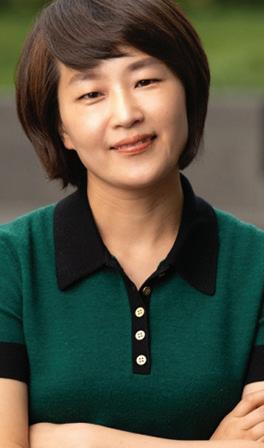
Assistant Professor Woojin Jung was invited to serve as an affiliate of the Rutgers Climate and Energy Institute. Dr. Jung was also
invited to speak as an expert on AI at several major conferences this year, including the RISE AI Conference at the University of Notre Dame, the ACM COMPASS in Toronto, the 2025 Africa Evidence Summit in Nairobi, the Conference on Integrated Health and Social Work in Taipei, the 2025 International Symposium on Spatiotemporal Data Science at Harvard University, and the 2025 Association for Public Policy Analysis & Management Conference in Seattle, among others.

Associate Professor of Professional Practice & Director of the Intensive Weekend MSW Program Jack Lewis and Assistant Professor of Teaching & Assistant Director of the Intensive Weekend MSW Program
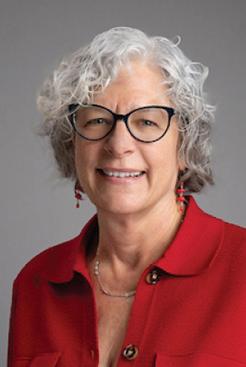
Amy Strickler were selected to co-chair the New Jersey Association of Mental Health & Addiction Agencies (NJAMHAA) Education Council. The NJAMHAA Educational Council serves as a coordinating partner between education and statewide agencies to explore career opportunities, upskilling, and training through advocacy and professional development.
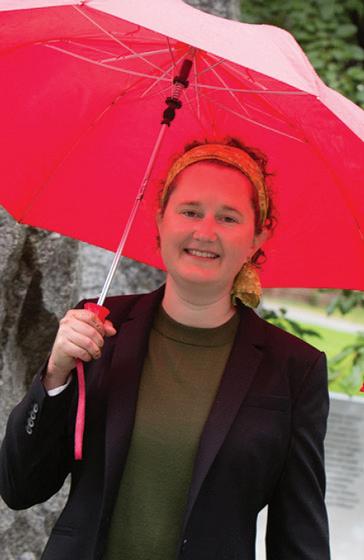
Associate Research Professor & Associate Director of the Center for


Prevention Science Kristin Powell (PI), Distinguished Professor & Director of the Center for Prevention Science N. Andrew Peterson (Co-PI), and Assistant Research Professor Cory Morton (Co-PI) received $1,725,000 from the New Jersey Department of Human Services, Division of Mental Health and Addiction for their project, “State Opioid Response Grant Evaluation,” to develop data collection tools to assess the performance and outcomes of the State Opioid Response project overall and its specific programs.
Dr. Morton (PI) also received a $1,078,405 grant from the New Jersey Department of Children and Families for his project, “Elevating Youth and Family Voice in Continuous Quality Improvement,” which aims to engage youth and families served by the New Jersey Department of Children and Families’ Division of Child Protection & Permanency to elevate their voice in continuous quality improvement and qualitative review processes.
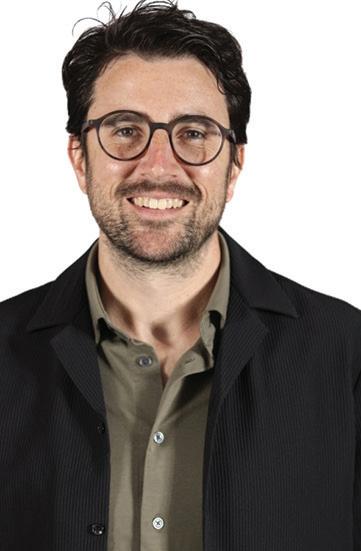
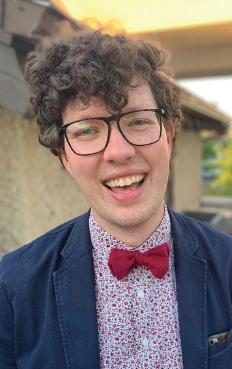
Assistant Professor Grant Victor (PI) & alum Michael Enich (Co-I) received a $30,000 grant from Rutgers University for their project, “The New Jersey Integrated Population Health Data (iPHD) Project.” The project will identify high-risk individuals who use opioids by leveraging the utility of emergency medical services naloxone administration data as a surveillance tool for opioid overdoses, and secondarily to examine other morbidities for people who inject drugs, including opioids, via hospital discharge data.
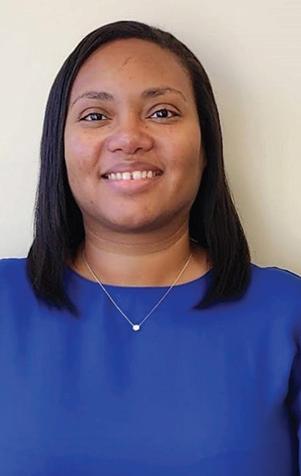
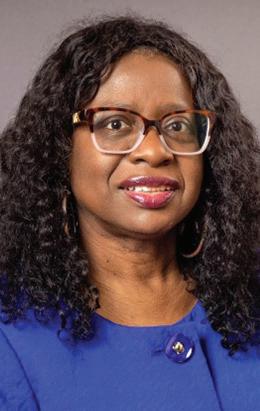
Assistant Professor Abigail WilliamsButler (PI) and Professor, Interim Associate Dean for Academic Affairs & Associate Dean for Diversity, Equity and Inclusion Antoinette Y. Farmer (Co-PI) received a $9,800 grant from Rutgers Global for their project, “Understanding Barriers to WellBeing: The Trokosi System in Ghana” to interview 15 Ghanaian women to understand the barriers involved in improving the wellbeing of girls and women involved in the Trokosi system. Under this system girls often spend their lifetimes within the shrine (a traditional place of worship) and lose access to their rights such as education, socialization, and vocational skills.
Dr. Farmer also received a $10,000 grant from Rutgers Prevention Science Roadmap Funding for her project, “Experiences of School Social Workers in Implementing Bully Prevention Programs” and was appointed co-chair of the Society for Social Work and Research’s Research Design and Measurement Cluster.

Associate Professor Emmy Tiderington was invited to serve on the National Alliance to End Homelessness’ Research Council to more actively strengthen the connection between policy and research. Dr. Tiderington will join other academics and think tank professionals who inform the Alliance’s efforts to understand and end homelessness. Council members often meet with policymakers to learn more about timely policy questions, help set the Alliance’s research agenda, provide expert assistance on Alliance research projects, identify future research needs, and may collaborate with the Alliance’s other external advisory groups and assist with its advocacy efforts.



“They often times will not invest in fixing up the plant or decide to go stop making a particular product because they have actually very tight margins. There have been shortages of ADHD drugs, shortages of cancer drugs, shortages of injectable solutions that they use in hospitals — all of that is going to get worse.”
Tariffs could have deep impacts on costs for prescription drugs: What to know
Stephen Crystal (Distinguished Research Professor) on NBC 4 New York

“They’re just not allowed to have a bad day. ‘We have a bad day, that means we get put on medication.’ Those kinds of stories I’ve been hearing for 30 years.”
‘All I Did Was Sleep’: Despite Years of Damning Reports, States Across the Country Fail To Rein in Psych Meds for Foster Youth
Associate Professor & Ph.D. Program Director Cassandra Simmel in The Imprint on a study of former foster youth who were prescribed psychotropic medications while in foster care

“Systemic barriers and misdiagnoses are rampant, even with resources; without an advocate, navigating the health care network can be nearly impossible.”
Older Black people die at higher rates than their white peers. Here’s why aging is a greater risk for Black Americans.
Ryon Cobb (Assistant Professor and Chancellor’s Scholar for Inclusive Excellence in Research on Black Americans) on WSB-TV 2 Atlanta
“To have a special carve-out that’s categorically in the name of aging in place is something that only the Older Americans Act does. In the context of structural ageism and underfunding for social services more generally, it’s really something special that the Older Americans Act provides.”
60 Years of the Older Americans Act: What’s in It for You? Emily Greenfield (Professor and Director of the Hub for Aging Collaboration) in AARP

“Historically, women started [gambling] in their 40s and 50s, largely because they went to casinos with friends. That changed with online gaming; women are gambling in response to advertising on TV.”
Sports betting isn’t just a man’s game now. Meet the women making wagers. Lia Nower (Associate Dean for Research, Distinguished Professor and Director, Center for Gambling Studies & Co-Director of the Addiction Counselor Training Certificate Program) in Yahoo! Life

“I am not hopeful that Housing First programs will be able to continue to rely on federal funding to support this work. Constituents who care about people with serious health conditions and keeping them off the streets, should pressure their congressional representatives to fully fund Housing First.”
Housing program at risk of closing if Murphy budget cut stands Emmy Tiderington (Associate Professor) in NJ Spotlight News
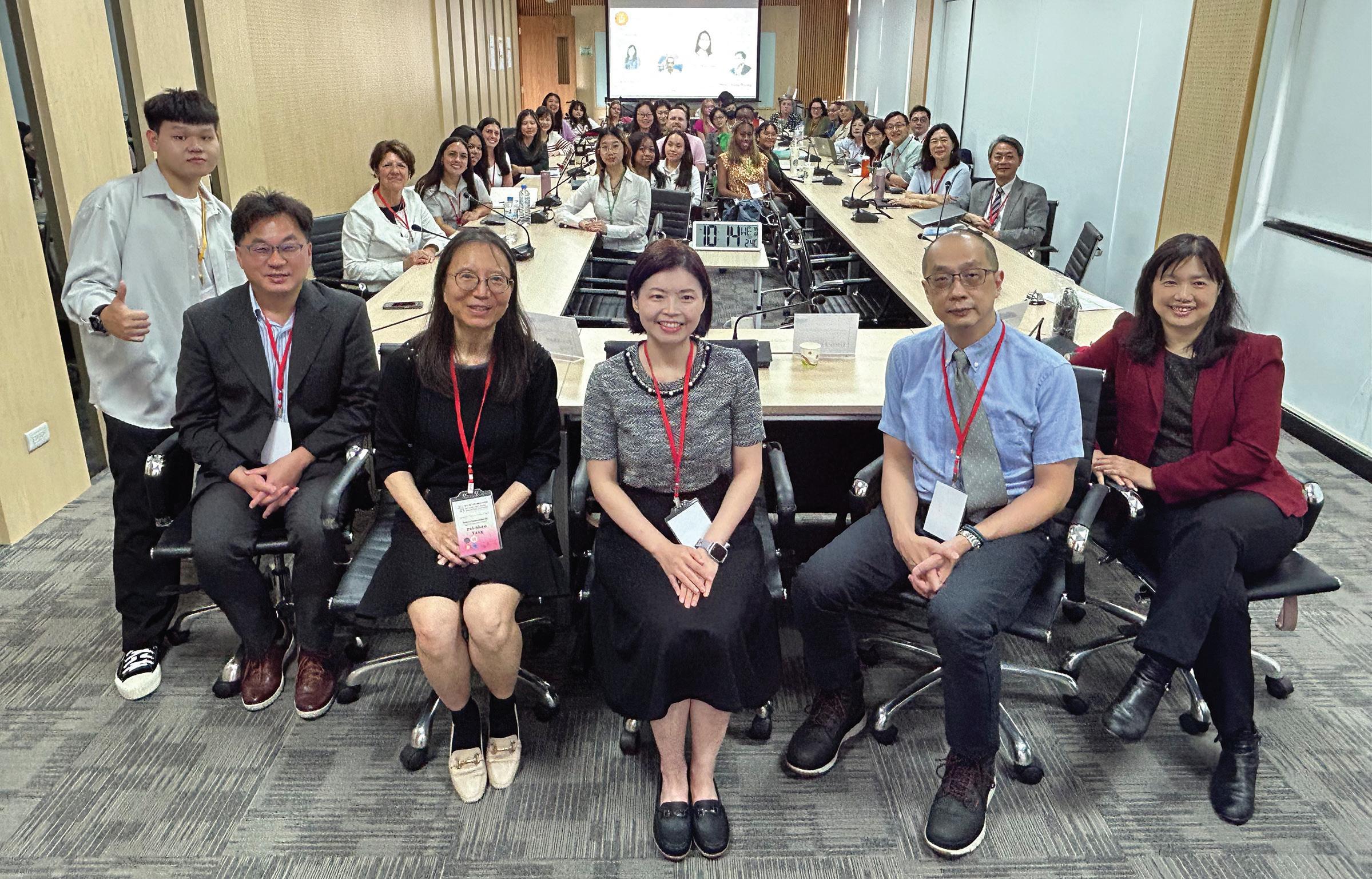
he 2025 International Conference on Integrated Health and Social Work, held at National Taiwan University (NTU), brought together over 20 scholars from 12 universities across South Korea, Vietnam, Macau, the United States, and Taiwan.
The two-day event served as a dynamic platform for advancing interdisciplinary research and collaboration in the field of integrated health and social work. Dr. Chen-Ling Hung, Associate Dean of the College of Social Sciences at NTU, opened the conference with a keynote address emphasizing the urgency and global relevance of integrating health and social work to address the complex and evolving needs of populations worldwide. She highlighted the importance of fostering interdisciplinary approaches to promote wellbeing in a rapidly changing society.
As a co-host, the Rutgers School of Social Work played a central role in shaping the conference. Rutgers faculty collaborated with NTU in planning the event’s theme, agenda, and objectives; selecting and organizing speakers, panels, and workshops; promoting the conference to a broader audience; facilitating meaningful networking opportunities; and contributing to post-conference evaluations and follow-up efforts. Rutgers faculty and students delivered eight presentations, showcasing innovative research on the integration of
health and social work. Presenters included Dean George Leibowitz, Associate Dean Chien-Chung Huang, Karen Zurlo, Jamey Lister, Woojin Jung, Holly H. Lister, Makayla Davis, Danielle Sylvester, Julia Vallario, Elina Roychowdhury, Jamie Frank, and Daria Gordon.
The conference is tied to a forthcoming Special Issue on Integrated Health and Social Work in NTU Social Work Review, Taiwan’s top-ranked social work journal indexed in the Taiwan Social Science Journal Index. This special issue will further disseminate cutting-edge research and contribute to scholarly discourse, policy development, and practical applications in the field.
Reflecting on the event, Associate Dean for Faculty Development Chien-Chung Huang stated: “The conference brought together a global community of scholars to share innovative research and foster meaningful collaborations. By co-hosting this impactful event, Rutgers University School of Social Work had the privilege of advancing critical conversations and promoting actionable insights to enhance the integration of health and social work research worldwide.” He further noted: “This initiative represents a significant step toward enhancing academic and professional engagement in integrated health and social work. Through the international conference and special journal issue, we aim to contribute to knowledge dissemination, policy development, and interdisciplinary collaboration. The project’s impact will extend beyond the initial timeframe, fostering continued dialogue and research in this vital area of study.” n

r. George Leibowitz, Dean and Distinguished Professor of the Rutgers School of Social Work, was awarded the 2025 Sol Gothard Lifetime Achievement Award from the National Organization of Forensic Social Work (Forensic Social Work Alliance). The award was presented at the Alliance’s annual conference in New Orleans on May 28, 2025.
The award is named for the Honorable Sol Gothard, who devoted his career to protecting the abused and to improving the legal system to which they are entrusted. A native New Yorker, Gothard was a social worker and attorney who served as a juvenile court and appellate judge in Louisiana until his retirement in 2005.
“Dr. Leibowitz’s life’s work mirrors Judge Gothard’s unwavering dedication to justice, compassion, and elevating the role of forensic social workers in shaping a more ethical, humane world,” said conference presenter Dr. Viola Vaughan-Eden of Norfolk State University. “Through every role he has held, Dr. Leibowitz has lived
out the values this award represents and continues to inspire all of us who believe in the power of social work to transform lives.”
For more than 25 years, Dean Leibowitz has worked at the intersection of mental health, trauma, and the justice system, especially with youth and adults impacted by sexually harmful behavior. His contributions span clinical treatment, policy reform, risk assessment, and training the next generation of forensic social workers. Dean Leibowitz currently serves as a research and clinical member of the Association for the Prevention and Treatment of Sexual Abuse (ATSA) and as a tireless advocate for evidence-based, ethical interventions that restore dignity and promote healing. He co-authored the foundational text, Forensic Social Work: Psychosocial and Legal Issues Across Diverse Populations and Settings, 2nd Ed. (2017).
The Alliance was established to advance social justice through the interprofessional collaboration of human service and legal systems, develop forensic standards and best practices, produce quality material for interdisciplinary forensic education and practice, and advocate for court-involved children, youth, adults and families. n

Do you know a fellow Rutgers School of Social Work alum who has made an indelible impact on their community? Have you made a lasting mark yourself? Rutgers School of Social Work’s Alumni Council seeks nominations for its Outstanding Alumni Award. Your nomination gives these outstanding individuals (or yourself) the opportunity to be recognized for their hard work and accomplishments. Nominations for this year’s award are due by October 24, 2025
Eligibility Criteria
n Nominees must have matriculated at Rutgers University and earned either the BASW, MSW, Ph.D. in Social Work, or DSW degrees.
n Nominees cannot currently be an employee of Rutgers University or a current member of the Alumni Council.
n Self-nominations are accepted and encouraged.
n Posthumous nominations are not accepted.
n Must be able to attend the Annual Winter Alumni Reception on December 4, 2025 in New Brunswick.
Nomination Process
Please send an email with the following information to Dr. Tawanda Hubbard, Alumni Council President, at thubbard@ssw.rutgers.edu
Nominator Information
n First and Last Name
n Email address
n Relationship to the nominee
Nominee Information
n First and Last Name
n Email address
n Occupation
n Description in approximately 500 words of the impact this individual had on Rutgers and the community.
Thank you for helping us to recognize your fellow alumni for all their important and noteworthy accomplishments to the field. n

AI has the potential to address a wide range of social issues, but tactics must be grounded in social work principles and community engagement.
Artificial intelligence (AI) may seem like an unlikely partner for the human-centric profession of social work. After all, social work is about communities, relationships, equity, and advocacy. But that’s exactly why, according to Dean and Distinguished Professor George Leibowitz, social workers have an important role to play in this fast-moving field.
“We can harness data science, AI algorithms, and predictive models for social good,” Leibowitz says. “Social workers need to be part of the conversation, so new technologies are informed by appropriate methodologies and theory and are guided by a deep knowledge of the communities we serve.”

Indeed, for more than a decade, social workers nationwide have been collaborating with engineers, computer scientists, and biomedical researchers to build data-driven tools that address pressing social issues and support clinicians in the field.

So far, social work has had what Leibowitz calls a “tenuous relationship” with AI. On one hand, the profession recognizes the immense potential of machine learning, predictive modeling, and data science to support social well-being. On the other, there’s legitimate concern about bias, ethics, academic integrity, and the risk of losing the human connection so central to the field. “There’s a fear that AI will replace humans or eliminate the relationships we have with our clients and communities,” says Leibowitz. “But human-centric AI—AI that requires human input to be meaningful and interpretable— actually depends on us.” Indeed, for more than a decade, social workers nationwide have been collaborating with engineers, computer scientists, and biomedical researchers to build data-driven tools that address pressing social issues and support clinicians in the field. These include chatbots that manage clinical intake, algorithms that develop treatment plans, wearable sensors that detect falls among older adults, and predictive models that assess risk for depression or opioid dependence.
At Rutgers, AI is beginning to play a larger role in social work education and practice. A workforce development grant from the Human Resources Services Administration is currently funding AI-powered telehealth training to help social workers and healthcare providers work together to reach patients and solve problems. More broadly, partnerships with the Rutgers Artificial Intelligence and Data Science Collaboratory (RAD) and with outside institutions like New York University’s Constance and Martin Silver Center on Data Science and Social Equity are helping shape local and national conversations around AI and community care.
At the same time, Rutgers’ social work researchers are collaborating with clinicians and engineers to co-develop transparent, trustworthy machine learning models (see the sidebar for more details on these projects). “AI and machine learning models are only as good as the input,” explains Associate Dean for Research and Distinguished Professor Lia Nower. “They’re not all-knowing programs. Using AI in an ethical way requires subject
matter experts who know the kind of information that needs to be used and generated.”
This approach reflects what Leibowitz calls “community-driven informatics” or “human-centered AI,” where communities and advocates—not just coders—inform the development of AI tools. “Chatbots and other technology must be fed and trained to work well with input from human beings,” he adds. “When it comes to any type of AI that affects social work and its practice, our role is to interpret the evidence and algorithms and make good shared clinical decisions in concert with medical care communities. None of that goes away with AI and, in fact, it’s where social workers can be really helpful.” To that end, the school has partnered with Stonybrook University to build innovative, stakeholder-driven machine leaning models to predict a number of substance use outcomes. At Rutgers, the school has proposed a new interdisciplinary postdoctoral fellowship that combines social work, education, psychology, and data science to train future leaders in ethical AI for behavioral health.
Teaching the Next Generation
When it comes to AI’s value in the classroom, faculty reactions are mixed. Some worry that generative AI (like ChatGPT) encourages academic dishonesty. Others see it as a powerful tool. The truth is somewhere in between.
Assistant Professor Woojin Jung has integrated coding basics and AI lessons into her advanced statistics classes, where students learn how to use data in their research. But she’s also noticed an uptick in students copying and pasting directly from ChatGPT in their assignments and on online discussion boards. “In a typical class, one or two students out of 25 will use AI unethically, meaning they submit an assignment that’s not their own writing, is plagiarized, or uses illegitimate sources,” she says. “To combat this, I share these concerns and lay out AI guidelines in the syllabus. We have to be proactive about that.”
Jung’s point of view is substantiated by recent reports that encourage educators to integrate

AI into syllabi and rethink grading standards to reflect the reality of these new tools. And if you ask Leibowitz, students should learn not only how to prompt a chatbot, but how to interrogate the source of its information, assess its validity, and use it to inform—not replace—critical thinking. “AI is here,” says Leibowitz. “We have to train students to use it ethically, to understand its biases, and to enhance their work.”
The School of Social Work is currently leveraging AI via simulation exercises. This prepares students for integrated care settings by training them to address behavioral health problems alongside physicians and other healthcare providers in various settings. “Students have the opportunity to practice in simulated environments so they can hit the ground running in a hospital, for example, where a team draws on the expertise of various disciplines,” Leibowitz says. “Simulation enables a quick transfer of knowledge that you just can’t get from reading a textbook. It’s experiential. Our goal is to teach students to treat real patients, and simulation helps us do that.”
At a time when headlines often paint AI as an existential threat to human professions, Leibowitz offers a different perspective: one of cautious optimism. “AI will not replace the human element in social work; actually, I believe it can enhance and improve practice,” he says, pointing to applications that deliver interventions to communities and reduce time spent on data collection.
While AI certainly still has its share of limitations, like biased facial recognition software and misinformed health chatbots, these obstacles are precisely why social workers need to engage. “Bias in data, cultural irrelevance, lack of transparency— these are problems social workers are trained to spot,” Leibowitz says. “Our values compel us to ask the hard questions and make sure the tools we use reflect the diversity, dignity, and worth of every person. If we align AI with our mission, and we train our students to do the same, we don’t have to be afraid. We’ll be better for it.” n
At the School of Social Work, researchers are tapping into the power of AI to drive social change.
At the School of Social Work’s Center for Gambling Studies, Director Lia Nower is developing a machine learning algorithm to identify individuals who are gambling online at dangerous levels. “We know there’s a cohort of individuals who are overspending, but there’s currently no requirement that gambling platforms try to identify or help these people,” Nower says. “Problem gambling impacts families and communities because it can lead to unemployment, bankruptcy, crime, homelessness, suicide, and countless other adverse consequences. Gambling not only impacts the individual, but also those around the individual.”
Nower and her team identified a range of variables linked to escalating gambling behavior, such as placing larger bets, gambling more frequently, or spending a growing share of one’s income on gambling. “Machine learning can trace these patterns to find a tipping point that places individuals into a risk category,” she explains. “This is virtually impossible to do with human calculations alone.” Nower’s model is currently being used to inform regulators of patterns and trends, with the goal of encouraging them to require online betting platforms to adopt similar safeguards.
In practice, as risky gambling patterns escalate and persist, the gaming system would flag the individual so they can be offered appropriate resources like educational materials or, in more serious cases, a mandatory cooling-off period (a strategy already used in parts of Europe). “It’s really up to the regulators at this point,” Nower says. “Our goal is to give them the tools they need to make informed decisions.”
Aid organizations delivering resources and assistance to underserved communities require accurate data to identify where help is needed. While broad data about countries or regions is readily available, detailed information about specific communities is much harder to collect. That’s because traditional methods—like household surveys—are time-consuming, and the sample size is limited. They may require travel to remote areas and can be incomplete, especially in rural regions or places lacking electricity or infrastructure.
But, thanks to AI, Assistant Professor Woojin Jung is able to pinpoint areas of need with extreme accuracy, even in developing regions.
Jung trained an AI model to analyze satellite imagery and identify areas showing signs of poverty that may require aid. The model analyzes features that are correlated with development like buildings (including homes, schools, and grocery stores), pixel intensity, bodies of water, and road conditions (paved or unpaved). Vibrant colors (versus dull, uniform areas) and nighttime light can also signal the presence of electricity and development. Jung then correlated these findings to those collected via household surveys about assets and income. “Once the model learns the correlations, it can predict wealth or poverty without the household survey,” she says. “That’s the key part, since the sample sizes for those surveys are limited and not all areas are surveyed, for example, less populated areas. Once we have this granular level of socioeconomic conditions, agencies can reach out to vulnerable populations with high confidence and more accuracy.”
Senior Stephanie Gomez-Vanegas, a curriculum assistant at the Rutgers School of Social Work, plans to use her voice to improve lives through systemic change.
Rutgers University-New Brunswick senior Stephanie Gomez-Vanegas is confident that the field of social work is her calling.
“I just naturally like helping people,” said Gomez-Vanegas, a transfer student who attends Rutgers School of Social Work. “I’ve just always liked to work with families and communities to solve people’s problems.”
As a first-generation Latina student raised by a single mother, Gomez-Vanegas found her path early on, advocating for her nonEnglish speaking Colombian family members. Once in the field, she plans to use her voice to help others, such as those faced with language barriers or who are too young to speak up for themselves.
“I love speaking up for people,” said Gomez-Vanegas, adding she wants to work with adolescents. “I’ve always had to speak up for my mom and aunt because English is not their first language. I had to make all the appointments, doctor appointments, everything like that. I would have to constantly translate back and forth. So, I had to grow up pretty fast.”
The 23-year-old, who is bolstering her major in social work with a minor in planning and public policy through the Edward J. Bloustein School of Planning and Public Policy, said her goal is to eventually pursue a career in macro social work so she can focus on large-scale issues and making systemic changes. But before getting into the field, she plans to pursue a master’s degree in social work at Rutgers.
“I just like how broad the field is,” said Gomez-Vanegas. “I’m still getting exposed to new career options, and it’s good to know I can maneuver in many different directions with this major.”
She added, “My plan is to work in macro. I feel like we don’t have enough social workers who are in the macro fields and we need more of them. So, that’s the goal. That’s the plan.”
One aspect of social work that Gomez-Vanegas said she is passionate about is finding ways to counter urban blight — “when communities are run down with abandoned buildings, not enough greenery, broken-down infrastructure, etc.”
She wants to be instrumental in implementing changes, “so when people leave their home looking for an escape, they’re not encountered with an even worse environment but somewhere that feels comfortable and safe.”
“It’s not just about making these cities prettier,” she said.
Growing up in Bridgewater Township, N.J., Gomez-Vanegas initially attended Raritan Valley Community College before completing her associate’s degree at Middlesex College. She transferred to Rutgers for her junior year.
“It was a no brainer,” said Gomez-Vanegas, who described the transfer process as easy. (Being close to home, the in-state tuition, and “Rutgers having one of the best social work programs in the state” were other draws, she added.)
DuWayne Battle, assistant dean and teaching professor at the School of Social Work and the director of the undergraduate social work program at Rutgers-New Brunswick, has taken notice of the senior’s work ethic.
“She has drive, grit, and determination,” said Battle. “She is one of the most inquisitive and positive people I have ever met.”
Last year, Gomez-Vanegas served as Battle’s research assistant, helping him with presentations, attending several state conferences, and participating in a study-abroad trip to Taiwan that included a conference on meditation, social work, and life education.
But Gomez-Vanegas became ill during the Taiwan trip and required medical help.
“Although she was hospitalized in Taiwan, she refused to return home early but rejoined the group after we traveled to a Buddhist Liberal Arts College, which hosted the conference,” Battle said.
This year, Gomez-Vanegas is Battle’s curriculum assistant and attends the monthly meetings of the curriculum committee for the bachelor of arts in social work program. During the winter break, she traveled to Merida, Mexico, for a study abroad experience overseen by Battle, who added that Gomez-Vanegas attended planning meetings with faculty and provided translation for colleagues in Mexico.
Outside of her studies Gomez-Vanegas keeps busy pursuing Rutgers

internship opportunities and extracurricular activities.
As part of the Rutgers Scarlet Service Internship program, she worked as an intern under Joe Vitale, a state senator, as well as New Jersey Assembly Speaker Craig Coughlin and Assemblywoman Yvonne Lopez. Gomez-Vanegas said the experience bolstered her confidence, along with her public speaking skills.
“Especially when I’m in places like this with all these people who are in government, you can’t shy away,” she said. “You need to step up and speak your mind and talk and network and everything like that.”
She also works part time as a behavioral health technician for Progressive Option Support Services, assisting children with autism to develop behavioral skills in Middlesex County.
On campus, Gomez-Vanegas is vice president of the Rutgers University Calisthenics Club and is actively working to recruit more women who might feel intimidated about working out in maledominated spaces. The soon-to-graduate senior, who also was a member of the university’s Brazilian Jiu Jitsu Sport Club, encourages all students to find a club that interests them and join.
“Everybody says that: ‘Get involved in clubs,’” she said. “Literally, do it. That’s really what makes your college experience.” n
A forum hosted by the Rutgers School of Social Work’s Center for Research on Ending Violence recognized a gift in support of scholarships and honored a Rutgers alumna.
andra Lanman is gratified that her daughter Sheryl’s memory lives on through a special fund created at the Rutgers School of Social Work in support of the efforts of the Center for Research on Ending Violence.
“I know that Sheryl would be incredibly grateful to know her short life could have such a positive impact,” she told nearly 100 people gathered at the forum “Breaking Cycles, Building Futures: Advancing Research, Education, and Action to End Violence” held in Winants Hall at Rutgers–New Brunswick on April 22.
The event celebrated the center’s almost 20 years of work leading multidisciplinary efforts to eliminate violence and systemic power imbalances through research, education, and community engagement.
Lanman said that since childhood, her daughter had aspired to help others. After earning two degrees from Rutgers—a bachelor’s in psychology in 2003 and a master’s degree in social work in 2010—her daughter worked at Womanspace (now Younity), a nonprofit agency in Mercer County serving victims of domestic violence and sexual assault. In 2015, breast cancer took Sheryl Lanman Nichols’s life at the age of 34.
At the event, her mother cited a “beautiful thank you note” she received from Rutgers School of Social Work doctoral student Maria Guevara Carpio, SEBS’21, whose research at the center is being partially supported by the memorial fund.
Guevara Carpio wrote that she is working on a study to learn more about the victimization rates among Latinas, an area for which data is lacking. “Your donation made this possible,” she wrote to Lanman. “I’m thankful for the opportunity to work on something I’m passionate about and with a community I care about deeply.”
Lanman, a graduate of Douglass College and the Rutgers School of Communication and Information who formerly worked in communications and marketing for Rutgers, said she shared the note on her Facebook page. “It’s so important that people know how their donations are being used,” she said. “I think that’s a huge aspect of giving. I welcome these communications because I can report back to our donors how they have made a difference.”
A second fund started by Lanman and friends of her late daughter supports two annual awards to master’s degree students at the School of Social Work doing fieldwork in the area of interpersonal violence.
The night also included an honor for Rutgers alumna Mariam Merced, director of community health promotion programs for the RWJ Barnabas Health System–Robert Wood Johnson University Hospital, who received the center’s inaugural Community Champion Award for her longtime service to the community. Merced holds a master of arts in labor studies from Rutgers–New Brunswick.
The event raised awareness of the impactful work being led by the center and its far-reaching influence within the Rutgers community and beyond. Guests had the chance to learn
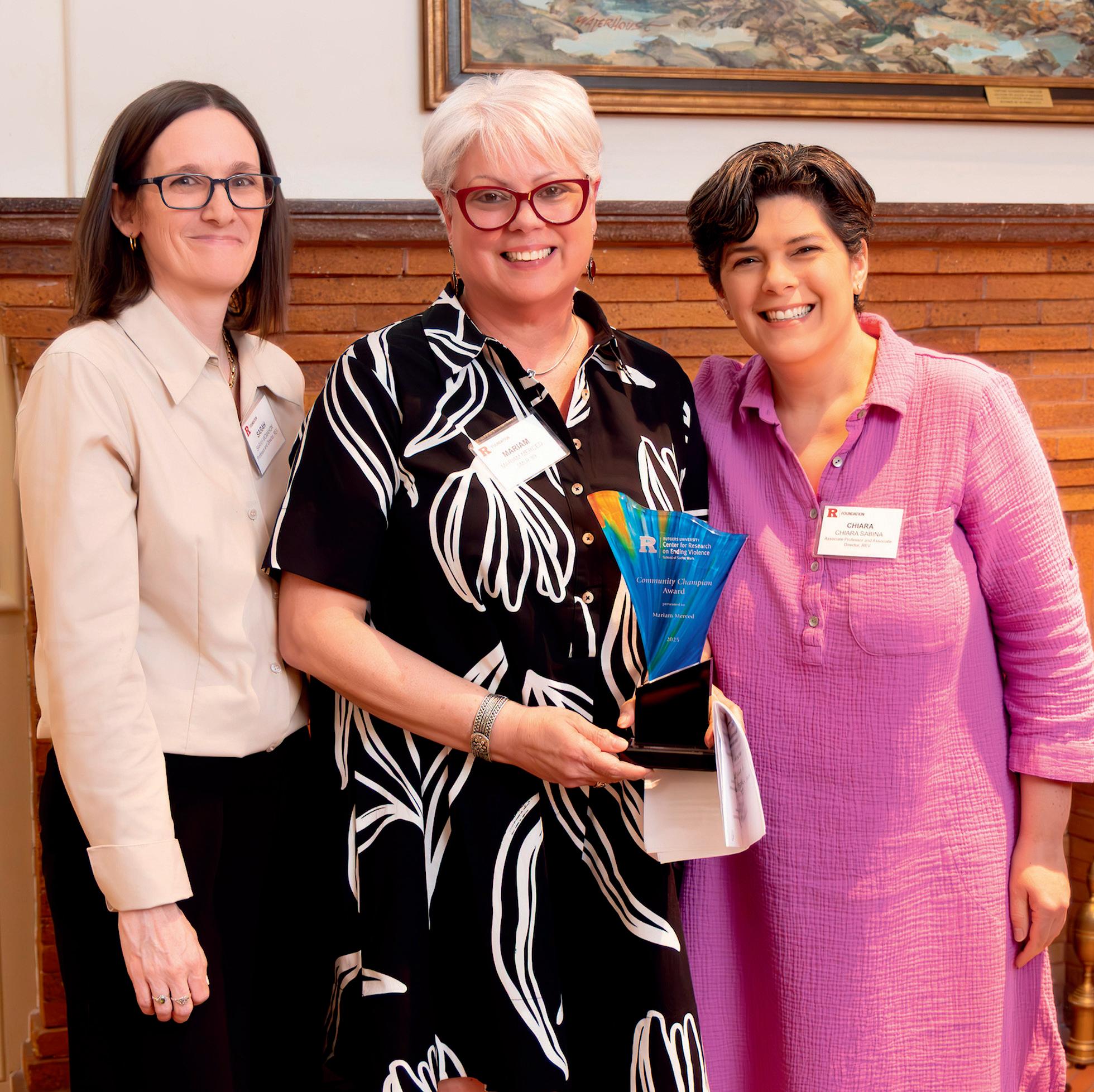
about student and faculty research and gather for networking opportunities across academia, policy, and practice.
The center’s director, Professor Sarah McMahon, said the evening was inspirational. “It was a privilege to be in the room with such an incredible group of people dedicated to preventing and responding to violence and we are grateful to all who attended,” she said. “We are at a critical juncture in time for this work, and it was inspiring to think together about the ways we can do this collectively.”
Associate Professor Chiara Sabina, the center’s associate director, said, “There was a vibrant energy in the room which included so many of our constituent groups—alumni, community partners, staff, students, the Office of Violence Prevention and Victim Assistance, friends of Rutgers, and faculty. The work toward ending all forms of violence united us all.”
From left, Professor Sarah McMahon, Community Partner Award honoree Mariam Merced, and Associate Professor Chiara Sabina
below:
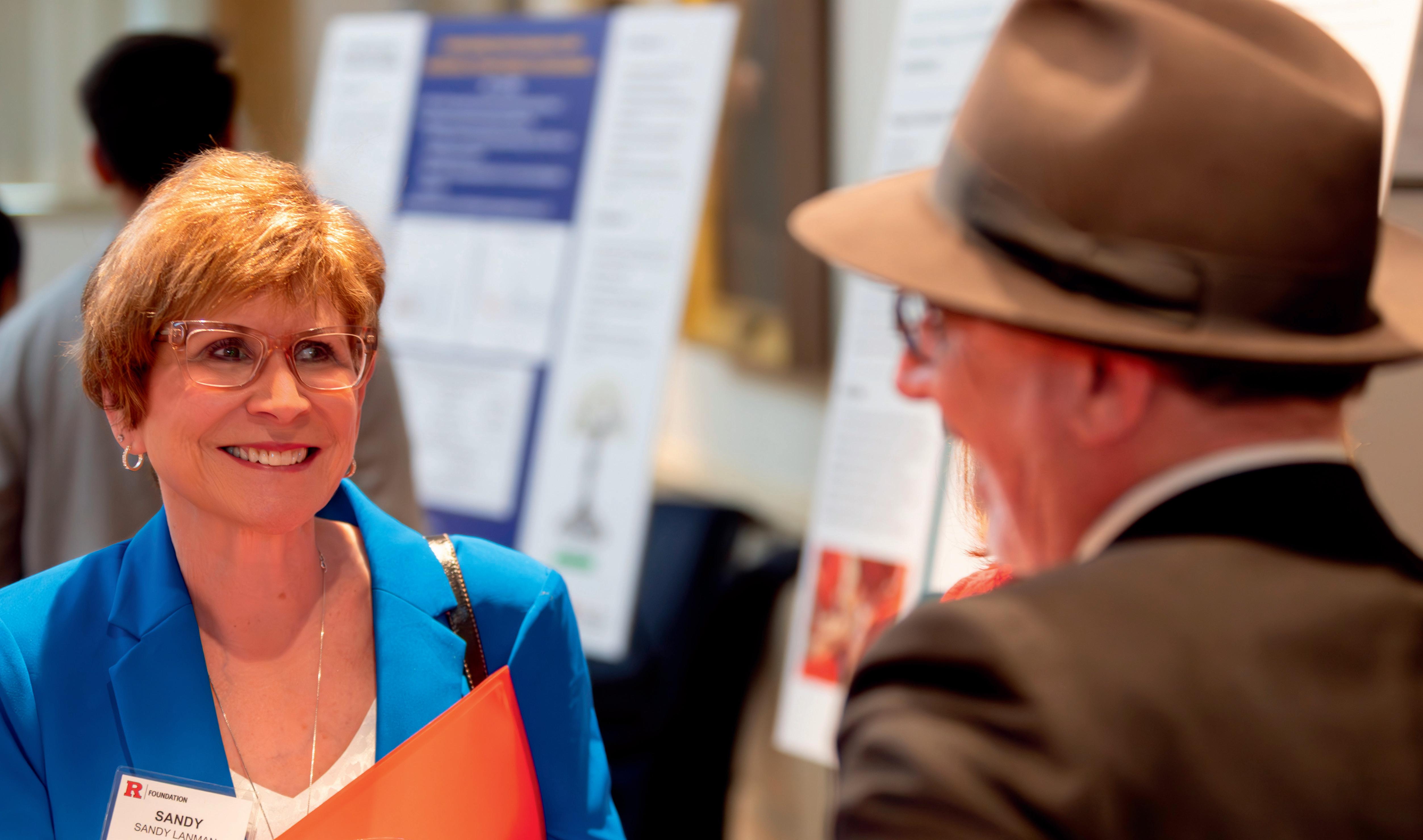
Additional speakers included Rutgers School of Social Work Dean and Distinguished Professor George Leibowitz; Rebecca Vazquez, director of the Office for Violence Prevention and Victim Assistance at Rutgers–New Brunswick; and Amritha Sridhar, SSW’22, ‘23, a child and family therapist at EveryMind.
“As an alum, it was an honor to be in a room with those who have dedicated their lives to ending violence,” Sridhar said. “It reinforces the power of community and collective action. This shared commitment strengthens our mission to break the cycles of violence and create lasting change.” n
Learn more about the Center for Research on Ending Violence at socialwork.rutgers.edu/centers.
hen Shari Botwin began her master’s program at Rutgers School of Social Work, she was far from the thriving trauma therapist and advocate she is today. At 22, she was lost, overwhelmed, and searching for direction.
After graduating from Hofstra University with honors in psychology, she returned home to Cherry Hill, uncertain about her next steps. Being back meant reentering an environment that had never felt safe. She wasn’t yet ready to fully confront her past the years of sexual abuse by her father and a mother who remained silent but she knew she needed to build a future for herself.
“I clung to the belief that someday, someone would hear me,” says Botwin, recalling how, even as a child on the playground, she felt isolated. “I couldn’t let myself know the truth about what was happening to me, but I knew something was very wrong.”
Today, as a licensed clinical social worker, author, and speaker, Botwin is a recognized advocate for survivors worldwide. She also serves as an expert witness in civil cases involving sexual abuse including the high-profile case against singer R. Kelly offering professional insight to support those seeking justice. Her struggles have given her a deep well of compassion and empathy qualities, she says, that shape her work helping others reclaim their lives.
Before Botwin could help others, she had to find her own way forward. “In order to stay sane and stay alive, I told myself I needed to keep fighting,” she says. That determination led her to Rutgers, where she initially planned to become a school social worker, inspired by the guidance she had received from teachers throughout her education.
As she immersed herself in the program, however, she encountered concepts that struck a deeper chord. “I had classes that dealt with depression, trauma topics that felt uncomfortably close to home,” Botwin says. “Sitting through those discussions, the emotions I had buried for so long were surfacing, demanding
to be acknowledged.”
While at Rutgers, she found an important mentor in social work professor Myrna Marcus, whose clinical track courses reinforced what she was beginning to sense about herself. Marcus’s kindness and encouragement stay with her to this day. “I wrote about having suicidal thoughts in a paper. She recognized something was wrong,” Botwin recalls. “But I wasn’t ready to face it yet.”
Despite her turmoil and struggles with an eating disorder, she threw herself into the program, commuting to the Camden campus before taking classes in New Brunswick. Determined to be financially independent, she worked as a professional dancer, performing at bar mitzvahs and weddings to pay tuition.
“I was the most requested Philadelphia dancer,” says Botwin, who always found joy in music and theater. By her second year, she had saved enough to move out of her parents’ home and into an apartment in Collingswood.
Turning Pain into Purpose
Botwin didn’t begin therapy until she became a therapist herself. After earning her MSW in 1996, she took a job at the Renfrew Center in Philadelphia, a leading institution for treating eating disorders. There, she saw herself reflected in her patients people using anorexia and binge eating to numb their pain.
With her therapist’s gentle guidance and support, Botwin found the courage to break through years of denial. She had spent much of her life repressing the reality of her father’s abuse. The betrayal ran deep not just from him, but from her mother’s refusal to acknowledge what had happened. “My mom used to say, ‘Those are your memories, not mine,’” she recalls. “She was both an enabler and, in her own way, a perpetrator.”
Over time, she came to understand the connection between trauma, shame, and her eating disorder, which alternated between restriction and binge eating. As she healed, her professional focus sharpened. After two years at Renfrew, she opened a practice in Cherry Hill, specializing in trauma recovery, eating disorders, and anxiety. She also began speaking out and writing about her experiences, leading to her books Thriving After Trauma: Stories of Living and Healing and Stolen Childhoods: Thriving After Abuse.

“For years, I kept my story locked inside,” Botwin says. “But I knew there were things I needed to express. I wanted to write the kind of books that would have given me hope growing up books that offered both validation and guidance for those navigating trauma.”
Debra Goldsborough, a childhood friend and fellow alumna from Rutgers School of Social Work, was shocked when Botwin shared her story as an adult. “Shari always had this huge, electric personality,” says Goldsborough, a longtime school social worker at Lenape High School in Mount Laurel Township. “I had no idea what she was going through. I applaud her bravery. I’ll always be one of her biggest cheerleaders.”
Becoming an Advocate
Botwin is now a sought-after speaker and media contributor, providing hard-won insight into trauma and abuse. She works directly with survivors, helping them move beyond self-blame. She also works with families who have taken responsibility for and ownership of abuse.
Botwin’s advocacy expanded into the legal system when she began testifying as an expert witness in sexual abuse cases. “I went
to both Cosby trials in 2017 and 2018 as a writer and advocate,” she says. “That’s where I met prosecutors who later asked me to testify in the sexual abuse trials against R. Kelly and his business manager. At first, I laughed. I didn’t think a licensed clinical social worker could do that. But I learned I could, and I’ve testified in several criminal and civil cases on behalf of multiple survivors since.”
One of her most significant cases involved Stuart Copperman, a Long Island pediatrician accused of abusing 77 women when they were children. “It was a two-year case, and each survivor had their own hearing. It was incredibly powerful,” she says.
Botwin has not spoken to her mother or sister in years. Her father died in 2003 at 63, but the family rift remains. Despite this, she has made peace with her past and continues to find strength in the life she has built, including being a single mother to a teenage son.
For those struggling with trauma, she offers simple but powerful advice: “Tell someone. Don’t do it alone. Find a witness. What happened to you wasn’t your fault, and it doesn’t define you. You are not broken you are just like everybody else.” n
our alumni and friends who made gifts between July 1, 2024, and June 30, 2025. Your contributions create opportunities for our dynamic and determined students and faculty that otherwise would not be possible. We hope you find lasting pride in Rutgers School of Social Work.
Please note that names are listed as they were entered at the time of the gift. Questions or changes can be directed to Meera M. Ananth at meera.ananth@rutgersfoundation.org.
Corporate & Foundation Sponsors
Apple Inc.
Boston University
Henry and Marilyn Taub Foundation International Center for Responsible Gaming
Jewish Community Foundation of Greater Mercer
Lloyd A. Marks and Janice Siegel Foundation, Inc.
Microsoft Corp.
The Robert Wood Johnson Foundation
Village to Village Network, LLC
$10,000 to $25,000
Mrs. Virginia Aiken Gormley and The Honorable William L. Gormley
Ms. Doris M. Fortney, M.S.W.
$5,000 to $9,999
You!

William J. Annitto, M.D. and Ms. Alison Schwartz
Ms. Judith L. Evanko and Mr. Stephen Paraskivas
$1,000 to $4,999
Mrs. Lily E. Freier and Mr. Harris Freier
Mrs. Lorri S. Goldberg
Ms. Diane J. Hess
Mrs. Rebecca Ann Keane and Mr. William P. Keane
Mr. Steven E. Lanman and Mrs. Sandra H. Lanman
Dr. Judith L. McCoyd
Ms. Linda A. Myron
Dr. Cathryn C. Potter and Mr. Christopher Potter
Kathleen J. Pottick, Ph.D. and Mr. Jonathan M. Storm
Ms. Nellie R. Purefoy
Ms. Bonnie Jean Schwebel
Linda Walder, Esq.
Carl R. Woodward
III, Esq. and Mrs. M. Kathleen Woodward
$500 to $999
Joan G. Axelrod, Ph.D.
Ms. Ronne E. Bassman-Agins
Ms. Linda Block-Coalter
Ms. Theresa A. Comprelli McCutcheon
Mr. Sean J. Conlon
Mrs. Lisa Coran and Mr. Michael Coran
Mr. Christopher Edel
Lesley C. Ellerbusch, M.S.W. and Fred Ellerbusch, Ph.D., M.P.H.
Sharon A. Fortin
Mr. Jeremy S. Grayson and Mrs. Abby S. Grayson
Ms. Kathleen T. Kovach and Mr. Robert A. Orr, Jr.
Mr. Scott Lanman and Mrs. Rachel Lanman
Mrs. Carolyn E. McGuire and Mr. Damian P. McGuire
Ms. Beth I. Mucatel
The Reverend Raymond David Patch
$100 to $499
Mr. Alvin Ackerman
Mrs. Kathryn R. Adamiak
Ms. Sheribel Aguilar
Ms. Barbara Albu Lehman
Ms. Melissa L. Allen
Ms. Jill Avaltroni
Ms. Barbara Bailin
Ms. Janice A. Banta
Ms. Jean P. Barnes
Mrs. Suzanne M. Bell
Dr. Joseph A. Bertolino and William
Leipold, Ed.D.
Mr. Christopher J. Blanos and Mrs. Christine Yakaski Blanos
Mrs. Gail Bresnahan
Ms. Sandra I. Brewer
Ms. Sharyl A. Byank
Ms. Kerry Camerer
Ms. Elsa M. Candelario
Mrs. Erin M. Capone and Mr. Vincenzo Capone
Ms. Caitlin Renee Cave
Ms. Eva Cohen
Robin S. Cohen, L.C.S.W.
Mr. Douglas Collingwood
Mr. Thomas B. Conway
Mrs. Kathryn A. Cortese
Sandra Crewe
Mr. Arpan Dasgupta and Ms. Jill C. Matthews
Dr. Rebecca T. Davis
Nancy J. Des Rault, MSW LICSW
Jennie G. Ellis, M.S.W., L.C.S.W.
Mrs. Dana Feldman and Mr. Marshall Feldman
Ms. Harriet Fink
Mrs. Margaret A. Forrester
Mrs. Marie-Edith Ganthier and Mr. Loubert Ganthier
Mr. Allan GrafsteinBailin and Mrs. Ann Grafstein-Bailin
Mr. Kenneth Hahn and Ms. Ethel Lorenson
Ms. A. Heather Halperin
Lynne M. Healy, Ph.D. and Mr. Henry S. Healy
Dr. Paul A. Herman and Ms. Ruth Ann Koenick
Mr. Daniel Hesse
Mr. David P. Hoff
Ms. Ruth L. Honigfeld
Tawanda L. Hubbard, DSW
Dr. Juanita Johnson
Ms. Cheryl K. JonesHoladay
Chong-Youl Kim, Ph.D. and Byongnam H. Kim, Ph.D.
Richard S. Kleiman, M.D. and Mrs. Cynthia Jane Kleiman

Mrs. Beth S. Knight
Mr. Michael M. Knox and Ms. Barbara J. Bristow
Mr. Thomas Stanley Larson
Mr. Jose L. Laureano and Dr. Colleen M. Georges
Ms. Anne E. Leegan-Quinn
Ms. Diane Lia
Ms. Susan B. Maines
Ms. Kathleen Marchesi
Ms. Rebecca Mark
Mr. Jerome Steve Marton
Mr. Nicholas J. Masucci and Mrs. Diane Masucci
Ms. Tiffany L. Mayers
Ms. Jill McDonald
Ms. Gail E. McHugh
Ms. Shaniqua D. Mcrae
Ms. Patricia A. Mecca
Naomi B. Mendez, M.S.W.
Mrs. Lynn Ferrante Miller
Mrs. Carol T. Mostrom
Ms. Kirsten A. Muyskens
Dr. Lenna Nepomnyaschy
Ms. Karen M. Nevalsky
Ms. Jennifer L. O’Neill and Mr. Alejandro Pieroni
Ms. Anna W. Ott
Mr. James D. Peck and Mrs. Marsha L. Peck
George H. Pfirrmann, M.S.W., L.C.S.W.
Mr. Frank T. Picone
Ms. Donna M. Pincavage
Mr. William Pollak
Mrs. Mary R. Potter
Ms. Beverly Pressman Albert
Ms. Carolyn E. Ricketts
Mr. Robert M. Ring
Ms. Melissa Sartorius
Mr. Ethan D. Schoolman and Ms. Emily Bosk
Mr. Eric D. Schwartz
Ms. Jennifer Schwartz
Ms. Rachel H. Schwartz
Mr. Frederick Schwarzenbach
Dr. Cassandra A. Simmel and Mr. Anthony Mocenigo
Mr. Stanley C. Slachetka, Jr. and Ms. Joni M. Scanlon
Ms. Dianna Soll
Ms. Barbara Z. Sorkin and Howard Joseph Sorkin, D.M.D.
Mrs. Lisa H. Stafford
Mr. Richard A. Stagliano
Mrs. Bridget Stillwell Kennedy
Constance Z. Stober, M.S.W., D.C.S.W.
Dr. Karen R. Stubaus
Mrs. Jessica L. Suckerman and Mr. Daniel A. Suckerman
Ms. Janice Svizeny and Mr. Patrick Walsh
Mrs. Theresa K. Tally and Mr. Andy C. Tally
Ms. Paula S. Tsarides
Ms. Catherine M. Twanmoh and Dr. Jeffrey D. Charney
Ms. Susan G. Uhl
Mr. Cristian A. Urriola
Mr. Campo E. Vaca
Mrs. Ruth Z. Valentine
Dr. Gerard T. Reardon
Ms. Carol A. Veome
Ms. Nellie R. Vitale
Mr. William Waldman and Mrs. Carolyn Waldman
Dr. Daniel Weisman
Mrs. Denise K. Wilkens
Mr. Peter C. Winkler
Dr. Allison L. Zippay
Up to $99
Ms. June L. Albanowski
Ms. Joanne C. Angell
Brandon E. Arias, Esq.
Teresa Arnold
Ms. LaVerne E. Austin
Mr. Robert S. Baer
Mrs. Joan O. Bankole-Jones
Mr. Clarence Bernardo
Sherri Bobish
Mr. Terence B. Bodak, Jr. and Mrs. Kimberly Bodak
Ms. Barbara G. Bornstein
Ms. Channah R. Brandeis
Dr. Peter J. Bridge
Ms. Elana Broch
Mr. Joel D. Brown and Mrs. Terry H. Brown
Ms. Rosalind Campbell
The Reverend Sally L. Campbell
Ms. April L. Cardone and Mr. Frank Greenagel, Jr.
Ms. Ellen M. Carter
Ms. Nicole S. Cavalli
Mr. Jeffrey C. Chanin and Mrs. Ellen Chanin
Mrs. Diane Elaine Clapp
Mr. David V. Cocuzza and Mrs. Sharon L. Cocuzza
Ms. Annemarie
E. Cooke and Mr. Douglas McCray
Ms. Anita I. Costello and Mr. Zavier Mauldin
Mrs. Kelly-Jane Cotter
Ms. Anne De Sola Paust
Dr. Neil DeHaan, Jr.
Ms. Nancy B. DeLeon
Ms. Abbey DeSilva
Ms. Laura DiMarcantonio
Ms. Mary M. Ditzler
Ms. Christine C. Doman-Wells
Ms. Heather L. Escalona
Ms. Arielle Falcone
Mrs. Naomi Fassler Theisz
Mrs. Caryn Feder Alter and Mr. Marshall Alter
Ms. Maria Fernandez Giumarra
Ms. Barbara A. Ferrick
Ms. Florence A. Francis
Ms. Lynn R. Fryer
Ms. Eileen Alison Getchell-Shumbris
Mr. Peter Ross Gilbert and Mrs. Kathleen Gilbert
Nicole L. Goetz, D.N.P
Ms. Gail M. Goldfinger
Ms. Joan Gordon Chuakay
Mr. Milton Grin and Mrs. Trudi Grin
Mr. David Hayes
Laurie Hebditch
Mr. Jazzlyn Henry
Ms. Gisela Hoffmann Berkson
Dr. Langdon L. Holloway
Ms. Sheri B. Hovdestad
Mrs. Teresa Hunter
Ms. Dorna Jaeger Silverman
Ms. Marcia Jaffe
Ms. JanMarie Jarowicz Motz
Ms. Rosa D. Jones
Mr. Terence K. Jordan
Mrs. Carol R. Kasabach
Elliot Kay
Kevin V. Kelton, Ph.D.
Ms. Cheryl F. Key
Mr. Kevin C. Lee
Ms. Jenina S. Lepard, L.C.S.W.
Ms. Carole Lieber Wilkins
Ms. Mariadonna M. Litwak
Mrs. Deborah L. Lukens
Daveen L. Mann, M.S.W.
Mr. Dave Narasimhan and Mrs. Revathi Narasimhan
Ms. Kathleen McGrann
Mr. G. Arthur McKay
Ms. Jamie L. Mcknight
G. Sue McMunn, L.C.S.W., P.A.T. and Mr. Bert D. McMunn
Ms. Christine D. Minerva
Mr. David B. Moorehead and Mrs. Joanne A. Moorehead
NB Counseling, LLC
Mrs. Mary Eileen Nemeth
Natalia Nigro
Ms. Debra L. Norman
Ivan L. Page, Ph.D.
Reverend Pamela Pater Ennis
Ms. Carla R. Powers
Mr. Tibor Purger
Ms. Louise Ragusa
Mr. Joseph E. Repasky
Harry Rosenberg, L.C.S.W.
Ms. Leslie Rosenbush
Floyd
Mr. Ronald M. Salon, M.S.W.
Ms. Jessica Sanchez
Dr. Carlton M. Sapp
Ms. Kimberly A. Schafer
Lori R. Schlosser, Ph.D.
Mrs. Marilyn W Schwartz
Mr. Thomas R. Sirolli and Mrs. Barbara G. Sirolli
Kyle Smiddie, Esq.
Ms. Suzette M. Smith
Ms. Gwendolyn H. Smith
Ms. Shelby L. Somers
Ms. Lauren N. Sorkin and Mr. Marvin Yeo
Ms. Amy R. Stark
Ms. Annette M. Sussman
Ms. Rebecca SwannJackson
Mrs. MaryAnne D. Tamm
Brenda M. TorresJoyce, L.C.S.W.
Ms. Jamie Tretola
Ms. Alexandra Vineque
Ms. Amanda J. Visokay
Ms. Jennifer Volfson
Ms. Corinne D. Warrener
Mr. Samuel T. Wells and Ms. Nancy Goodman
Victoria Williams Brown, M.S.W. and Mr. Donald L. Brown
Sister Patricia M. Wormann, O.P.
Ms. Nancy A. Yorlano
Mr. Saul Zeichner and Mrs. Janice Zeichner
Rutgers School of Social Work mourns the passing of Dr. Elfriede (Elfi) Galanter Schlesinger, former dean and longtime professor, who died on June 6, 2025, and Professor Emerita Dr. Isabel Wolock, who died on May 30, 2025.
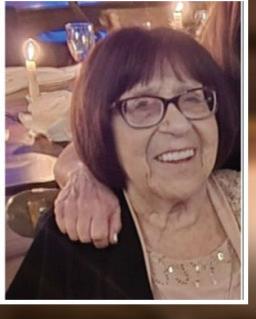

Born in Vienna on August 24, 1928, Dr. Schlesinger fled Nazi-occupied Austria in 1938 with her mother, eventually resettling in New Brunswick, New Jersey, with her reunited family. Her experiences as a refugee would go on to inform a distinguished career dedicated to social justice, education, and advocacy.
Dr. Schlesinger earned her Master of Social Work from Columbia University and her Ph.D. from Rutgers School of Social Work. Over several decades, she served Rutgers with dedication as both professor and dean, shaping generations of social work professionals. After retiring from Rutgers, she continued to teach at Fordham and Yeshiva universities and remained active in research and writing.
Among her many contributions to the field, Dr. Schlesinger was widely known for her textbook Ethnic-Sensitive Social Work Practice, co-authored with Wynetta Devore. The work played a pivotal role in integrating cultural and ethnic sensitivity into social work education and practice. She and Devore continued to publish and present on this critical topic, including their 2007 article, “Ethnic Sensitive Social Work Practice: Back to the Future,” in the Journal of Ethnic & Cultural Diversity in Social Work.
“I knew Elfi since the time I came to Rutgers in 1989,” said Professor Emeritus Raymond Sanchez Mayers, Ph.D., MSW. “I served under her as associate dean and director of the Camden program when she was acting dean. She was best known for her text — “Ethnic-Sensitive Social Work Practice” — which was an important contribution to the field. It exposed students to key concepts such as ethnic stratification.”
Beyond her academic leadership, Dr. Schlesinger was a strong advocate for retired faculty. She served as chair of the Rutgers AAUPAFT Retiree Assembly and was honored in 2014 with the Richard Wasson Leadership Award for her service.
At the time of her passing, Dr. Schlesinger was working on a memoir chronicling her early experiences as a Holocaust refugee — a testament to her lifelong commitment to truth, resilience, and remembrance.
Rutgers School of Social Work honors Dr. Schlesinger’s extraordinary life and legacy. She leaves behind a lasting impact on the field of social work and on the many students, colleagues, and communities she inspired.
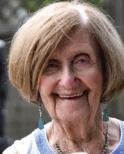

Dr. Wolock’s distinguished academic journey began at Skidmore College and continued at Rutgers University, where she earned her Ph.D. and went on to serve as a professor and Ph.D. program director at Rutgers School of Social Work. Over more than three decades on the faculty, she conducted vital research on children and families, helping to shape and advance the field of social work.
Following her retirement from Rutgers, Dr. Wolock continued her lifelong dedication to education, serving as a doctoral student advisor at the Wurzweiler School of Social Work at Yeshiva University in New York City. Even in retirement, her work ethic remained formidable—devoting herself fully to the success of her students.
“I met Isabel when I became dean of Rutgers School of Social Work, and she was a regular member of the retired faculty lunch group,” said Distinguished Professor Cathryn Potter. “She was retired, however, she was still working actively with social work doctoral students at Yeshiva, devoting the equivalent of a full-time job to that work. Isabel’s keen wit and genuine, focused nature was much appreciated. It was an honor to have the opportunity to learn from her.”
Dr. Wolock was especially known for her devotion to mentoring doctoral students. Professor Allison Zippay reflected on her legacy: “Isabel had a reputation for her devotion to mentoring doctoral students. She listened and guided and fastened on the rigor of the methods. Students expressed great appreciation for her commitment, time, and approach.”
Dawn Apgar, Ph.D., LSW, ACSW, Associate Professor and Director of the BSW Program at Seton Hall University, shared a personal tribute: “Dr. Isabel Wolock was a rare combination of intellectual rigor, quiet strength, and unwavering commitment to social work education. As a former Ph.D. student advisee, I remember her as someone who truly saw her students—who challenged us to think deeply and do our best work. She was brilliant at calming the fears of doctoral students who were embarking on qualitative research for the first time. She ran skills labs in quantitative analyses that actually made research fun! Her mentorship shaped the direction of my career and the spirit with which I practice social work. Her legacy will live on in every student she taught and every life they touch.”
Dr. Wolock’s enduring influence on social work education, her students, and her colleagues is immeasurable. Her legacy will live on in the countless lives she touched through her scholarship, mentorship, and unwavering dedication to justice and learning. n

We extend our deepest sympathy to the loved ones of the deceased alumni and friends listed below whose passing has been shared with the School through July 2025.
Ms. Mary L. Adams, SSW’85
Ms. Sheryl F. Brock, SSW’95
Ms. Mary Alice Gallagher, SSW’75
Ms. Betty A. Gonzales, SSW’88
Ms. Marion Graves-Jackson, SSW’72
Mr. Yeheskel Hasenfeld, SSW’62
Mr. Zev Hymowitz, SSW’64
Ms. Jean A. Kerr, SSW’83
Felicia M. L. Key, M.S.W., SSW’76
Ms. Mary M. Muise, SSW’80
Mrs. Carolyn D. Nix, SSW’78
Ruth E. Ross, Ph.D., SSW’78
Ms. Rita Gillen Sewell, SSW’91
Ms. Leola M. Shorter, SSW’07
Mr. Fred Andrew Sigafoos, SSW’69
Mr. Barry Preston Smith, SSW’73
Mr. Robert Edward Stone, SSW’64
Mrs. Paula Jane Waldman, SSW’78
Ms. Barbara P. Wallace, SSW’81
Thank you to all of our alumni who have sent us their news and updates. We encourage you to keep us posted with any good news about your job, your life, or your family. Email your news to lzazenski@ssw.rutgers.edu.
Bernard Bivens, SSW’78 has been working in the City of Philadelphia for approximately 30 years. Currently, he serves in the Quality Management and Compliance Unit of the Department of Behavioral Health & Intellectual Disabilities.


In addition to his fulltime private practice, Robert C. Ciampi, LCSW, PsyA, SSW’99 wrote the book, When to Call a Therapist - Expanded Edition (2022). He graduated from the Institute for Psychoanalytic Studies in the spring of 2024 and subsequently became an instructor for the Institute in the spring of 2025.
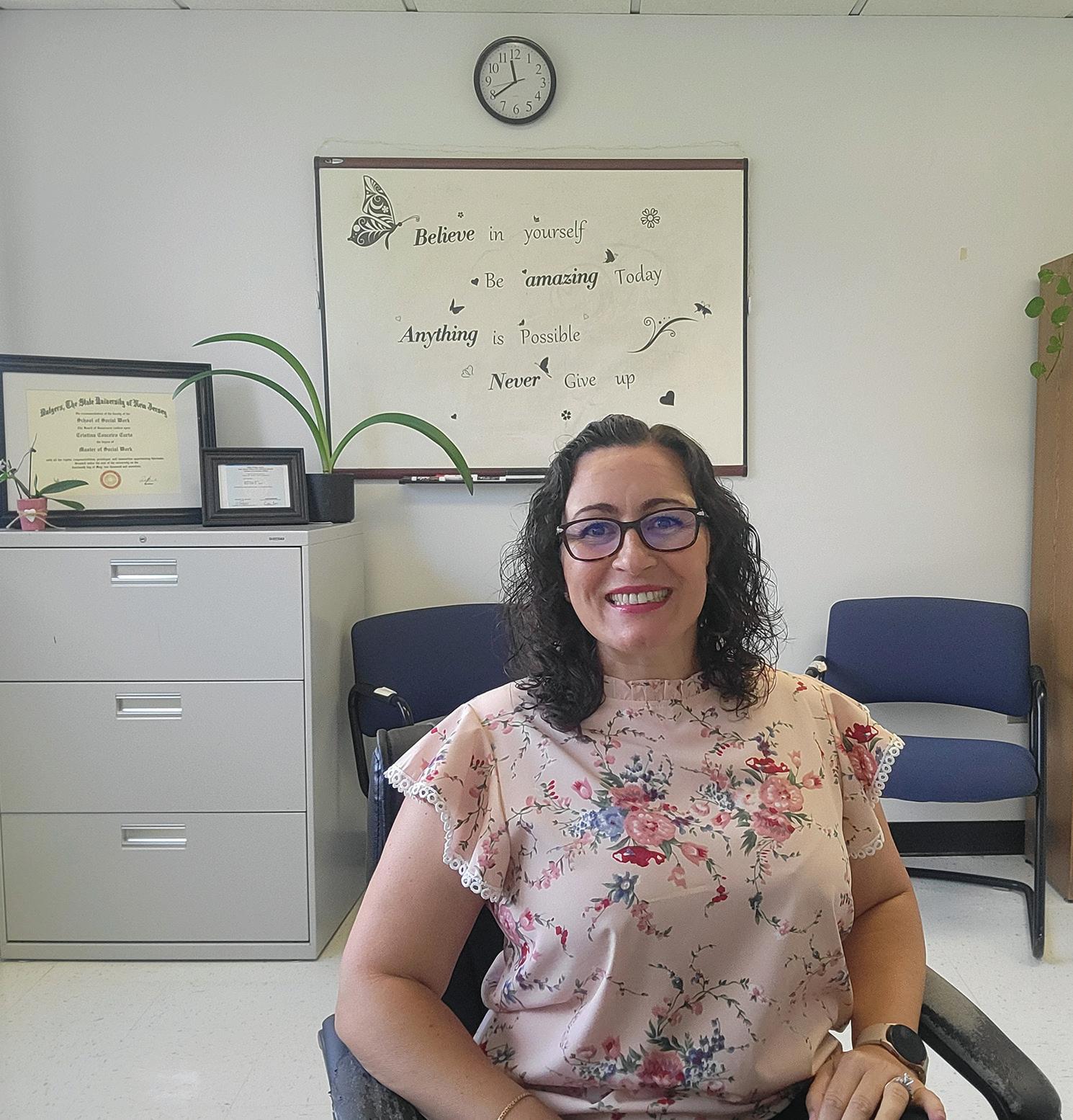
Cristina Curto, SSW’16, ’17 has built a meaningful and inspiring career in the field of behavioral health. After earning her BA in Social Work and MSW from Rutgers School of Social Work, Cristina immediately began working in outpatient behavioral health, where she found her passion and purpose. Since then, Cristina has grown both professionally and personally in the field, and she now serves as a program coordinator at Rutgers University Behavioral Health Care. In this role, she oversees several vital programs, including the Transcranial Magnetic Stimulation Program, the Young Adult Intensive Outpatient Program (IOP), and the Women’s Trauma IOP. Her leadership and dedication to mental health care have made a significant impact on the lives of many individuals and families. Cristina credits her time at Rutgers for laying the strong foundation she needed to thrive in her career. She is a very proud Rutgers alumna and believes her education prepared her for the work she does today. Her journey stands as a powerful example of what’s possible with passion, preparation, and purpose—values she continues to embody in her work every day.
Robert Cohen, SSW’85 recently finished writing a play about pseudo dementia. The play is about two neuroscientists who discover that many people diagnosed with dementia really have major depression. Much research has been done on this subject, but very few people are aware of the problem of this misdiagnosis.
After graduating from Rutgers School of Social Work, Steven Gold, SSW’97, LCSW spent a decade at Hackensack Medical Center’s outpatient department of child and adolescent psychiatry, becoming its senior clinician. In 2007, he began his full-time private practice. It continues to this day with his office now located in Fort Lee. Steven sees most clients in person while some clients prefer virtual sessions. Steven values continual learning as a human and in a clinical sense. He has dedicated his career to working primarily with teens and young adults with C-PTSD, OCD, and other anxiety and mood disorders.
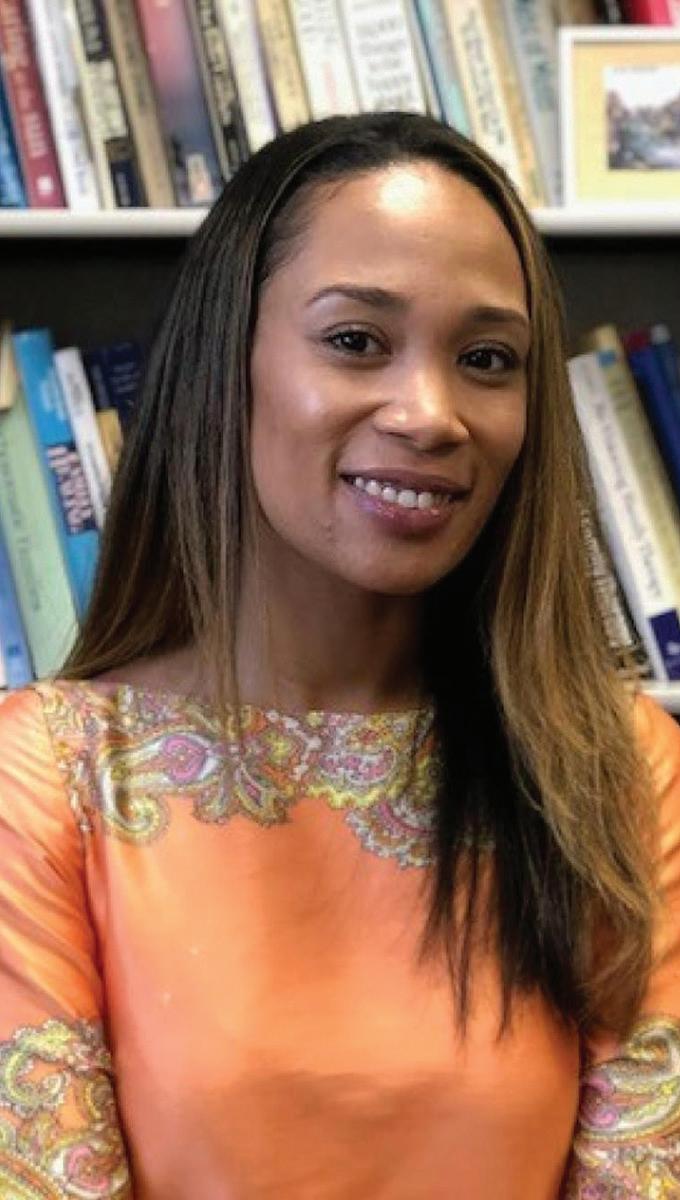
Since graduating from the DSW program, Ashley Gwathney, SSW’22 was selected as the 2024–2025 Post-Doctoral Associate for the Mellon Sawyer Seminar Series, Potentialities of Justice: Toward Collective Reparative Futures. The seminar, led by Associate Professor of History and ISGRJ–Newark Campus Director Mayte Green-Mercado and co-organized by Lauren Shallish, Associate Professor of Critical Disability Studies and Associate Chair, explored themes of social justice centered on four critical areas of inquiry: systemic racism, environmental crisis and climate change, disability justice, and human displacement and post-conflict resolution. The series aimed to illuminate shared histories and methodological frameworks that can generate meaningful responses to both past and present social harms. In addition, Ashley collaborated with the New Jersey State Policy Lab and the Joseph C. Cornwall Center for Metropolitan Studies and co-authored the New Jersey Department of Education Promising Practices Project: Qualitative Findings report.
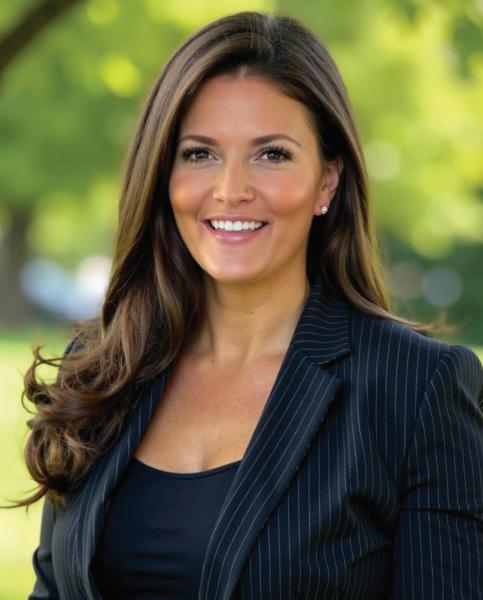
Monica Maher, SSW’15 is a seasoned clinical social worker, trauma therapist, and child welfare leader with over 14 years of dedicated service to vulnerable children, families, and survivors of abuse. Her professional journey began with the New Jersey Division of Child Protection and Permanency, where she rose through the ranks—from frontline investigator to Supervising Family Service Specialist II—overseeing complex cases of child abuse, neglect, and high-risk youth. Her expertise in trauma and systems navigation established her as a leader in child protection, ultimately leading to an intergovernmental transfer to the New Jersey Department of Corrections, where she now serves in management and provides supervision to supervisors.
Currently providing oversight to the Office of Substance Abuse Programming and Addiction Services, Monica manages largescale program implementation, supervises multidisciplinary teams, and evaluates vendor compliance—all while advocating for trauma-informed treatment within the criminal justice system.
Monica also owns and operates a private psychotherapy practice in Cherry Hill, where she provides EMDR therapy to adult survivors of sexual abuse, childhood trauma, and complex PTSD. Her work is grounded
in evidence-based care and a deep commitment to healing. During this time, she serves as an expert witness in abuse allegations in family court.
Beyond her clinical work, Monica is a dedicated educator, serving as an adjunct professor at Rider University. She actively develops curriculum focused on child welfare and other social work courses.
A proud alumna of Rutgers School of Social Work, Monica credits her professional success to the exceptional education and training she received there. She holds certifications in complicated bereavement, reunification therapy, and abuse allegations in family court. She is a member of EMDRIA, the Association for the Treatment of Sexual Abuse, and the NJ Child Abuse/ Neglect Task Force.
Monica’s work bridges direct care, systems reform, and education—shaping safer, more responsive environments for survivors of trauma and the professionals who serve them.

Jamie McKnight, SSW’25 served the Mental Health Association of New Jersey for her practicum placement while she was earning her MSW. She presented at the New Jersey Peer Connections Whole Health Expedition on social wellness and fostering connections with her task supervisor, Hope Shawlinski. “The experience was so valuable and warmed my heart,” McKnight said. “I asked the audience what they will take with them from the presentation, and one attendee said my presentation gave him the confidence to reach out to his estranged family members and build up a relationship with them again. His response gave me my own sense of confidence. Imposter syndrome is something many individuals in social work experience, and moments like these serve as a reminder that I do belong and am making a meaningful impact.”

When Sazha Ramos, SSW’21 began her journey to becoming a social worker, she imagined jumping right into clinical work with clients. The first time she took her licensure test she did not pass by three points. Eventually, she passed, and her path took on a broader shape—one rooted in advocacy, systems change, and national impact. She started working to reduce barriers to substance use treatment and expand access to recovery housing through nonprofit advocacy. That work led her to consult with treatment providers across the country, helping them improve their programs and reach more people in need. Today, Sazha serves as the vice president of Military and Veteran Affairs at American Addiction Centers, where she leads a national team and collaborates with clinical teams in eight states. She is deeply grateful for the versatility and leadership opportunities her social work degree has provided. It’s a powerful reminder that this profession isn’t limited to one path—it’s a launching point for leaders to keep going!
Since graduating from Rutgers School of Social Work, Ana Serna, SSW’21 has been working in medical settings, providing individual, group, couples, and family counseling. She obtained her clinical license last year. This milestone allowed her to open her own private practice, which she manages alongside her work at a family health care center in Long Branch. In addition to providing clinical services,

she is committed to raising mental health awareness within the Hispanic community by offering educational workshops at a nearby community center. Ana is deeply grateful for the foundation she received at Rutgers, and she is currently reflecting on the possibility of pursuing a doctoral degree. Her goal is to continue educating others and breaking the stigma surrounding mental health, especially in underserved communities. She would love to connect with more colleagues to support each other and collaborate on improving the mental health of the residents of New Jersey. n

“I am not afraid of storms, for I am learning how to sail my ship.”
LOUISA MAY ALCOTT
Rutgers, The State University of New Jersey
120 Albany Street, Tower One, Suite 200
New Brunswick, NJ 08901
Visit us on the web: socialwork.rutgers.edu
Email us at: lzazenski@ssw.rutgers.edu
Follow us on Facebook, X, Instagram, LinkedIn, and YouTube at RutgersSSW
